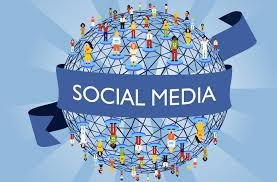Social Media advantages and disadvantages: A Double-Edged Sword in the Digital Age

Social media has become an undeniable force in our lives. From staying connected with loved ones to fueling global movements, its impact is vast. However, like any powerful tool, social media comes with its own set of advantages and disadvantages. Understanding both sides of this digital coin is crucial for navigating its complexities and maximizing its benefits Social Media advantages and disadvantages.
Advantages of Social Media
- Enhanced Connectivity and Communication:
Social media platforms have revolutionized the way we connect with others. Gone are the days of waiting for letters or relying on expensive long-distance calls. Today, we can instantly connect with friends and family across the globe, share updates, and participate in real-time conversations. This fosters a sense of closeness and belonging, especially for geographically dispersed communities.
Social media also bridges communication gaps between generations. Grandparents can stay connected with their tech-savvy grandchildren, and parents can easily share pictures and milestones with distant relatives. This fosters stronger family bonds and creates a more inclusive social experience.
A Gateway to Information and Learning:
Social media platforms are a treasure trove of information. Users have access to news articles, educational resources, and expert opinions on virtually any topic imaginable. This empowers individuals to become self-directed learners and stay informed about current events. Social media groups dedicated to specific interests allow users to connect with like-minded individuals, share knowledge, and participate in discussions that deepen their understanding.
Furthermore, educational institutions are increasingly leveraging social media to share course materials, facilitate online discussions, and enhance student engagement. This creates a more dynamic learning environment that transcends the confines of traditional classrooms.
A Platform for Entertainment and Self-Expression:
Social media provides a constant stream of entertainment, from funny memes and viral videos to live music performances and celebrity updates. It caters to diverse interests and offers a welcome escape from daily routines.
Additionally, social media platforms empower users to express themselves creatively. Individuals can share their photography, artwork, music, or writing, building a digital portfolio and potentially connecting with a wider audience. This fosters a sense of community and allows people to share their passions with the world.
A Catalyst for Social Change and Mobilization:
Social media has become a powerful tool for social activism and raising awareness about critical issues. Movements like #BlackLivesMatter and #MeToo gained significant momentum through social media, sparking global conversations and mobilizing supporters around the world.
Social media allows individuals to document injustices, share petitions, and organize protests. This empowers ordinary citizens to hold institutions accountable and advocate for positive change.
A Boon for Businesses and Marketing:
Social media platforms offer businesses a cost-effective way to reach a vast audience and build brand awareness. They can create targeted campaigns, engage directly with customers, and gain valuable insights into consumer behavior. Social media also facilitates customer service interactions, allowing businesses to respond to queries and resolve issues promptly.
Furthermore, social media allows entrepreneurs and small businesses to compete on a level playing field. They can showcase their products and services to a global audience, fostering growth and brand recognition.
Disadvantages of Social Media
The Pitfalls of Addiction and Excessive Use:
Social media’s constant stream of updates and notifications can be highly addictive. The fear of missing out (FOMO) can lead to excessive screen time, negatively impacting productivity, sleep patterns, and mental well-being. Additionally, the curated online personas presented on social media can create unrealistic expectations and feelings of inadequacy.
Privacy Concerns and Data Sharing:
Social media platforms collect vast amounts of user data, which is often used for targeted advertising and could be vulnerable to breaches or misuse. Privacy settings can be complex and change frequently, making it difficult for users to control who sees their information. This raises concerns about online security and the potential for manipulation or exploitation Social Media advantages and disadvantages.
The Spread of Misinformation and Fake News:
The ease of sharing information on social media can also be a breeding ground for misinformation and fake news. The lack of editorial oversight allows false or misleading content to spread rapidly, influencing opinions and potentially inciting social unrest. Social media users need to be critical consumers of information, verifying sources and exercising caution before sharing unconfirmed reports.
Cyberbullying and online harassment:
The anonymity offered by social media can embolden some users to engage in cyberbullying and online harassment. This can have devastating consequences for victims, leading to anxiety, depression, and, in some cases, self-harm. Social media platforms need to do more to address online harassment and create safe spaces for users.
Social Comparison and the Cultivation of an Unrealistic Online Persona:
The carefully curated online personas presented on social media can distort reality and foster social comparison. Users may constantly compare their own lives to the seemingly perfect lives they see online, leading to feelings of inadequacy and low self-esteem. It’s important to remember that social Social Media advantages and disadvantages.